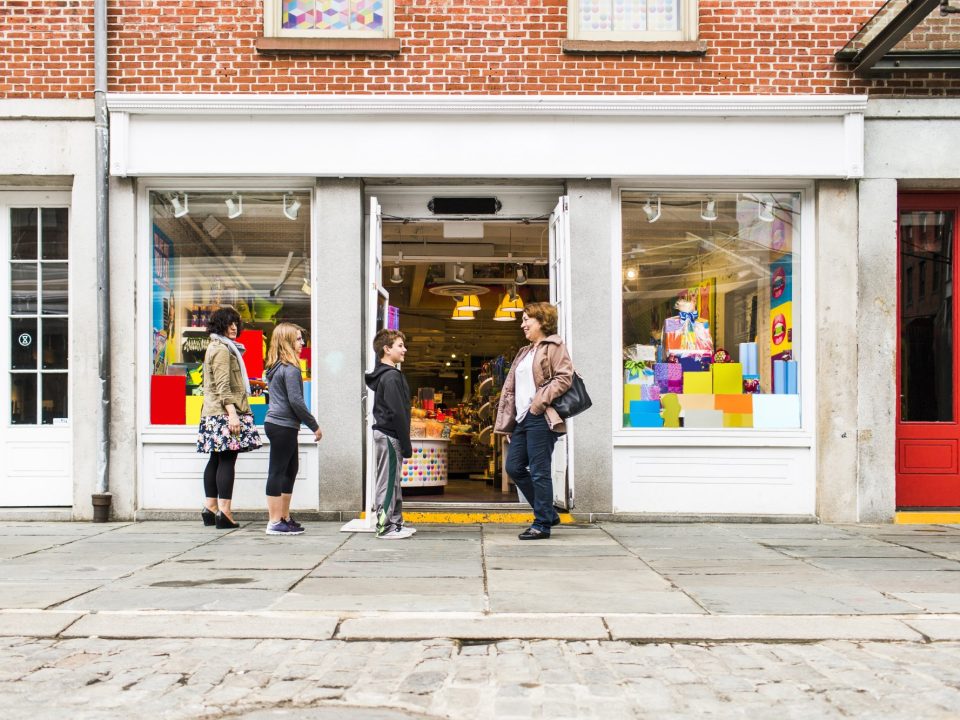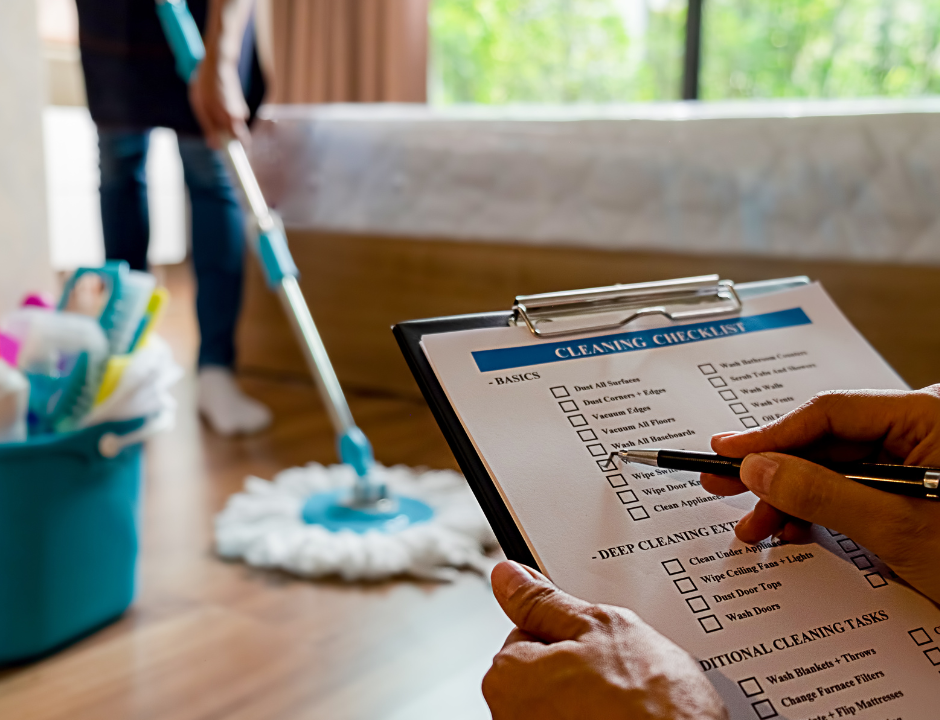Running a place in London, whether it’s an office near Liverpool Street, a shop just off Oxford Street, a bigger mixed-use site in Park Royal, or even a residential block in Greenwich, always comes down to the same thing: if the space is clean, people feel calmer, there are fewer distractions, and the work just flows better.
The problem most people run into isn’t that they don’t know what needs cleaning and it’s usually about keeping it steady. Who’s meant to do what, how often it should be done, and how to keep the whole thing running without blowing the budget.
That’s what we are breaking down here. This isn’t some overcomplicated manual; it’s more like a practical guide you can actually use if you’re managing a workplace, whether you’re a facilities manager, running an office team, or looking after a block of flats.
In the following text you can find a basic checklist, some notes for different types of spaces, a bit on compliance, and a bonus Excel template that you can use and adapt however you like.
If you’d rather not deal with all of this yourself and just want a proper partner to handle it, then Dazzle London is worth looking at. Dazzle is a cleaning company in London that keeps things simple: we will check what’s needed, deliver the work properly, and use digital tools so everything can be tracked.
What “good cleaning” actually means day to day
A clean building shouldn’t depend on someone going above and beyond every time. It’s more about having the basics done at the right time. That usually means the right jobs being done at the right pace—daily for the obvious things, weekly for the smaller details, and monthly or quarterly for the deeper tasks. It also means clear ownership. If nobody knows who’s emptying the fridge or resetting meeting rooms, it won’t get done. Write it down. There has to be proof that the work is happening too. Simple checklists, quick audits from supervisors, and honest reports go a long way. And finally; safety and compliance come first. That means COSHH in place, RAMS sorted, DBS checks done, and insurances that are up to date.
👉 Download the Office Cleaning Checklist (Excel) if you want a ready-made template to work from.
Core cleaning checklist for London workplaces
Daily basics
Reception and common areas: hoover or mop floors, disinfect all touchpoints like lift buttons and door handles, wipe down the reception desk, clear bins, and keep glass fingerprint-free.
Desks and workstations: wipe desks, sanitise keyboards, phones and mice (with IT’s approval), and empty both general and recycling bins.
Meeting rooms: wipe tables, clean chair arms, sanitise remotes and touch panels, and put the room back in order.
Kitchens and tea points: clean sinks and worktops, wipe appliances, run the dishwasher, and remove food waste.
Washrooms: toilets, basins, taps and urinals cleaned and disinfected, mirrors polished, floors mopped, and consumables restocked.
Floors and glass: carpets vacuumed, hard floors mopped with a neutral cleaner, and glass cleaned inside.
Weekly extras
-Dust vents, skirtings and cable trays.
-Vacuum edges behind doors and under desks.
-Refresh glass partitions and soft seating.
-Clean inside microwaves.
Monthly and quarterly jobs
-Monthly: clean fridge interiors (if agreed), wash inside windows, descale taps and kettles, dust higher areas, machine clean hard floors.
-Quarterly: deep clean carpets, wash upholstery, clean external windows, scrub grout in washrooms, degrease kitchens, deep clean IT kit, and reseal hard floors if needed.
If you want this tailored to your site and how many people use it, Dazzle London will happily do a survey and set up a cleaning plan to match your budget.
Office cleaning in London
Since hybrid working, offices are not used the same way as before, so cleaning has to follow the people, not just the calendar.
You might have some days when hardly anyone comes in, and then other days when the place is full. It doesn’t make sense to treat them the same. Desks and meeting rooms are the main spots to watch. If you can get everyone into the habit of keeping their desk clear, then cleaners can actually do a proper job instead of just working around piles of paper and coffee cups. Meeting rooms should be reset as soon as they’re finished with, otherwise the next team walks in and finds dirty glasses, cables all over, and it sets the wrong tone.
For busier floors, having someone come in the middle of the day to tidy washrooms, kitchens and the main entrance really helps, because by late afternoon the place can look worn down already. For tech and screens, a light daily wipe is usually fine, but deeper IT cleans can be done every few months. And instead of long reports, sometimes just a supervisor walking the floor once a week and then a quick check-in with the manager once a month is enough to keep things steady.
Retail cleaning in London
Shops in London are tough to keep presentable because of the constant foot traffic, the weather dragging in dirt, and glass everywhere showing every mark. Cleaning here has to be done at the right times—before opening, after closing, and sometimes during the day if it’s really busy. The focus is always the front of the office: entrance glass, mirrors, fitting rooms, and the touchpoints like tills, barriers or displays.
Floors need a lot of attention because of chewing gum, spills and general wear, so spot cleaning through the day plus machine scrubbing when the shop is empty works best. Back areas matter just as much—stockrooms, staff kitchens, and waste areas can quickly get messy if they’re not part of the plan. When cleaning is done right, the store looks inviting, shelves stay dust-free, and customers don’t even think about it as it just feels right.
Commercial cleaning across mixed sites
Commercial sites often mix different types of spaces—offices, showrooms, light industrial, even studios. Each one comes with its own little rules. The best way to manage it is by planning around the risks and the access rules, because sometimes you’re dealing with contractors, alarms, or out-of-hours work. Periodic tasks like carpets, windows or high-level dusting need to be planned in advance because they often require special equipment or access permissions. Security is another point—keys, fobs, alarm codes—all of it has to be managed carefully, usually by supervisors. And because these sites are more complex, reporting becomes more important. Photos, digital checklists and time stamps help the client see that the work was done without needing to chase.
Communal block cleaning in London
For blocks of flats, the entrance area sets the mood for residents and visitors, so lobbies, corridors and stairs need regular attention. That usually means vacuuming or mopping floors, cleaning lift cars and buttons, wiping down rails, and keeping skirtings free from dust. Entrance glass and intercoms are small things that make a big difference if they’re clean. Bin areas should stay hygienic and organised, with bigger waste collections managed separately when needed. Outside touches like buzzers, gates, railings and even cobwebs at the entrance should be checked regularly. Periodic jobs like machine scrubbing the ground floor or polishing metal details keep the place looking cared for.
How often is enough
There isn’t one rule for all, because it depends on how busy the site is.
A small office with fewer than twenty desks might only need cleaning three times a week. A bigger office with seventy desks probably needs it every day. For large offices, a day porter is often recommended to keep washrooms and common areas decent between evening cleans. Retail usually needs both pre-opening and post-closing cleaning, and sometimes even during the day when the store is packed. For residential blocks, it depends on how many people live there, but daily or a few times a week usually works. The easiest way to know for sure is a site visit, and Dazzle London can give a proper plan after checking footfall and layout.
Compliance that actually protects you
It’s one thing to say you’re compliant, and another to have everything in order.
The basics are DBS checks, right-to-work verified, COSHH registers with proper safety sheets, and RAMS that match the site. These should always be updated when things change. Insurances need to be valid and on file. Staff should get proper training when they start, plus refreshers and toolbox talks every so often. Supervisors need to check the work regularly. Proof of work should always be available, whether that’s logs, time stamps or photos.
Sustainability without the big words
Sustainability doesn’t have to be complicated. Using lower-impact cleaning products, making sure chemicals are dosed correctly, and switching to machines that use less water and power are small steps that make a big difference. Clearer recycling signs help avoid mistakes and contamination charges. Keeping dust and vents under control also improves air quality, and staff notice that more than most other changes.
Simple wins that often get missed
One of the easiest ways to help cleaners is by having a clear-desk habit, even if only a few times a week. Otherwise, they can’t really clean properly. Edges, skirtings and vents often get skipped, but if you add them into the weekly or monthly plan, it stops dust building up. Microwaves and fridges are another one—if nobody is assigned, they just get worse until someone complains.
On busy sites, a couple of hours of day support at lunchtime can make a big difference in washrooms and entrances. Paperwork is another hidden issue; COSHH and RAMS need updating as sites change. And finally, supervisors should walk the site weekly, with a simple monthly review to agree any actions.
Free checklist
👉 Download the Office Cleaning Checklist (Excel).
The sheet has daily, weekly, monthly and quarterly jobs, plus a master list. You can use it as it is, edit it for your site, or even send it to Dazzle London who can turn it into a live cleaning plan.
A reliable cleaning partner in London
If you’re looking for steady cleaning support—whether for an office, a retail store, a mixed commercial site or a residential block—Dazzle London works on three simple rules: the work is planned properly, delivered consistently, and reported clearly.
Check services at www.dazzle.london
Email for a quick scope: hello@dazzle.london






